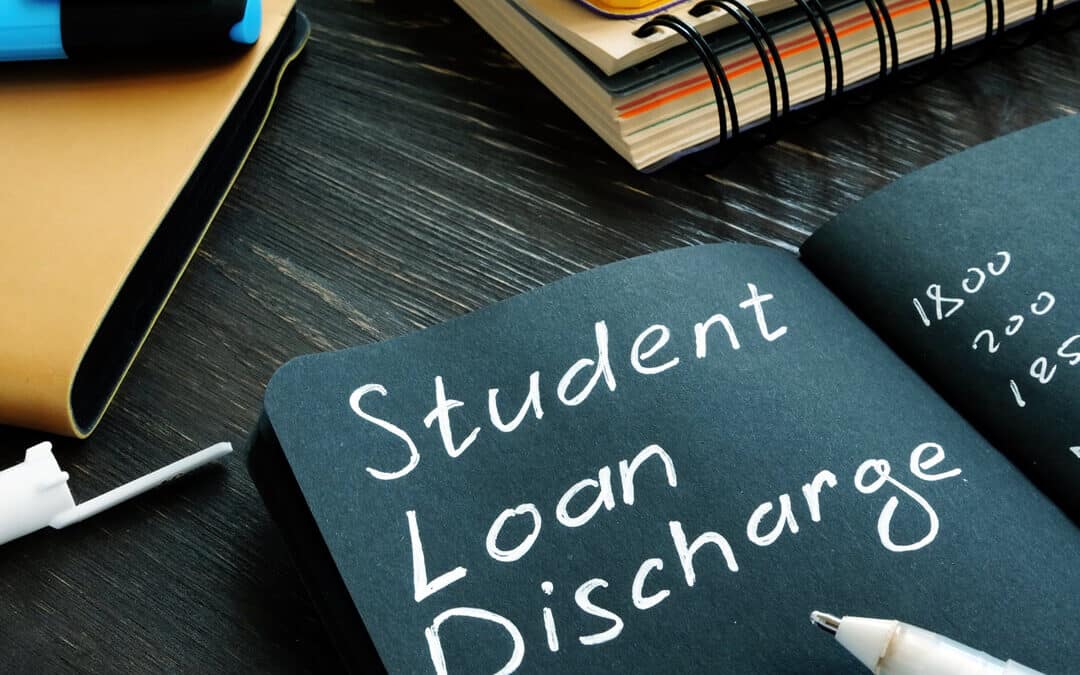According to the latest statistics, almost 45 million Americans owe an estimated $1.75 trillion in student loans. They took out these loans in good faith to help them pursue a college degree and secure a better future for themselves and their families. However, many have found it increasingly difficult to pay off their student loan debt.
This is in large part because of a rise in average debt and a decline in average wage values. In other words, a significant portion of college graduates who have borrowed money for their education, as well as those who have not graduated, are unable to repay their debts. As unpaid student loans continue to accrue interest, repayment becomes harder to manage, and leaves the borrower with the heavy burden of student loan debt.
If this describes your struggle with student loan debt, you may have wondered if filing bankruptcy could help you relieve the burden. The answer to that is complex and varies depending on a borrower’s financial situation. In this article, we will try to cover some of the basic principles of student loan bankruptcy to help you better understand your options.
Filing Bankruptcy on Student Loans
You can file bankruptcy on student loan debt, but having them discharged is not part of a standard bankruptcy process. The bankruptcy courts are stricter in allowing the discharge of student loans than that of unsecured debts. They require an assessment of “undue hardship” when it comes to discharging both federal and private student loans. This assessment occurs in an additional bankruptcy procedure called an “adversary proceeding”.
In an adversary proceeding, you must come before the Bankruptcy Court and present your case to a bankruptcy judge as to how continuing to pay your student loans would present an “undue hardship” on you and your family’s financial situation. Your student loan creditor then presents a defense against the discharge of your debt.
As the Bankruptcy Code does not define “undue hardship,” there are different tests used by courts to determine whether it would be an undue hardship to pay one’s student loans. Some courts take an all-or-nothing approach, while others will only discharge a portion of a debtor’s student loan. You would need to provide evidence to the court proving the following factors:
- You could not maintain a minimal standard of living if you had to repay the loan.
- This situation will probably continue for a large part of the loan repayment period.
- Before filing bankruptcy, you made good faith efforts to repay the loan.
What If You Can’t Meet the Undue Hardship Requirement
If you do not meet the requirements of this stricter standard, it does not mean it is completely impossible to have student loans discharged through bankruptcy.
Some loans that a borrower might consider “private student loans” are not considered that by the bankruptcy court and therefore not subject to the stricter assessment and extra proceeding. The following are some examples of such loans:
- Loan amounts that exceeded the actual cost of attendance (such as tuition, books, room, and board) if the loan got directly paid to a borrower
- Loans taken out to pay fora borrower’s education at an unaccredited college, unaccredited trade school, unaccredited trade certificate program, or a college in a foreign country.
- Loans taken out to help with fees and living expenses which borrower occurred while studying for professional exams (i.e. bar exam).
- Loans taken out to help with fees and living expenses while the borrower completed a residency for medical or dental training.
- Loans made to a borrower who only attended school less than half-time
If none of these factors apply to you, don’t give up hope about managing your student loan debt. You can still seek actions such as deferring your loans, applying for forbearance, or consolidating the different loans into one debt, but often at lower interest.
Getting Help with Student Loan Bankruptcy
As you can see, filing bankruptcy on student loans is a complex matter. A lot depends on your financial situation and how it aligns with bankruptcy regulations. To ensure you have the best chance at relieving your student loan debt through bankruptcy, you may wish to get the help of an experienced bankruptcy attorney. The bankruptcy attorney can assess your situation to see if student loan bankruptcy could be possible and, if so, guide you through the proceedings.
Brock and Stout have over 25 years of experience helping clients get the financial fresh start they need. Contact us for a free evaluation of your financial situation to see if we can help you.

